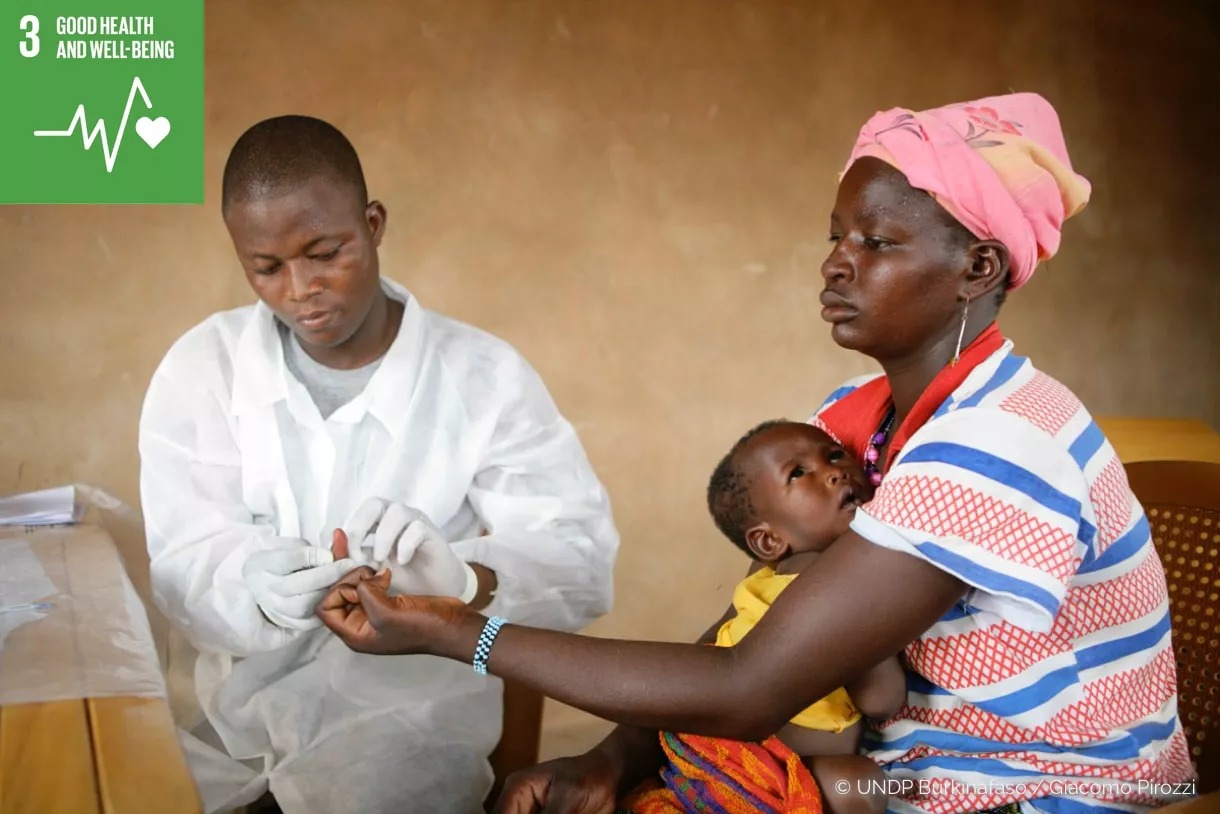Globally, the number of people living in extreme poverty declined from 36 per cent in 1990 to 10 per cent in 2015. But the pace of change is decelerating and the COVID-19 crisis risks reversing decades of progress in the fight against poverty. New research published by the UNU World Institute for Development Economics Research warns that the economic fallout from the global pandemic could increase global poverty by as much as half a billion people, or 8% of the total human population. This would be the first time that poverty has increased globally in thirty years, since 1990.
More than 700 million people, or 10 per cent of the world population, still live in extreme poverty today, struggling to fulfil the most basic needs like health, education, and access to water and sanitation, to name a few. The majority of people living on less than $1.90 a day live in sub-Saharan Africa. Worldwide, the poverty rate in rural areas is 17.2 per cent—more than three times higher than in urban areas.
For those who work, having a job does not guarantee a decent living. In fact, 8 per cent of employed workers and their families worldwide lived in extreme poverty in 2018. One out of five children live in extreme poverty. Ensuring social protection for all children and other vulnerable groups is critical to reduce poverty.
COVID-19 response
Developing countries are most at risk during – and in the aftermath – of the pandemic, not only as a health crisis but as a devastating social and economic crisis over the months and years to come. According to UNDP income losses are expected to exceed $220 billion in developing countries, and an estimated 55 per cent of the global population have no access to social protection. These losses will reverberate across societies; impacting education, human rights and, in the most severe cases, basic food security and nutrition.
To support the poorest and most vulnerable, the UN has issued a Framework for the immediate socio-economic response to COVID-19, calling for an extraordinary scale-up of international support and political commitment to ensure that people everywhere have access to essential services and social protection.
The UN COVID-19 Response and Recovery Fund aims to specifically support low- and middle-income countries as well as vulnerable groups who are disproportionately bearing the socio-economic impacts of the pandemic. Women leaders convened by UN Deputy Secretary-General Amina Mohammed have called for support for the UN roadmap for social and economic recovery and for fully funding of the UN Response and Recovery Fund.
View Goal Target
- By 2030, reduce the global maternal mortality ratio to less than 70 per 100,000 live births
- By 2030, end preventable deaths of newborns and children under 5 years of age, with all countries aiming to reduce neonatal mortality to at least as low as 12 per 1,000 live births and under-5 mortality to at least as low as 25 per 1,000 live births
- By 2030, end the epidemics of AIDS, tuberculosis, malaria and neglected tropical diseases and combat hepatitis, water-borne diseases and other communicable diseases
- By 2030, reduce by one third premature mortality from non-communicable diseases through prevention and treatment and promote mental health and well-being
- Strengthen the prevention and treatment of substance abuse, including narcotic drug abuse and harmful use of alcohol
- By 2020, halve the number of global deaths and injuries from road traffic accidents
- By 2030, ensure universal access to sexual and reproductive health-care services, including for family planning, information and education, and the integration of reproductive health into national strategies and programmes
- Achieve universal health coverage, including financial risk protection, access to quality essential health-care services and access to safe, effective, quality and affordable essential medicines and vaccines for all
- By 2030, substantially reduce the number of deaths and illnesses from hazardous chemicals and air, water and soil pollution and contamination
- Strengthen the implementation of the World Health Organization Framework Convention on Tobacco Control in all countries, as appropriate
- Support the research and development of vaccines and medicines for the communicable and noncommunicable diseases that primarily affect developing countries, provide access to affordable essential medicines and vaccines, in accordance with the Doha Declaration on the TRIPS Agreement and Public Health, which affirms the right of developing countries to use to the full the provisions in the Agreement on Trade Related Aspects of Intellectual Property Rights regarding flexibilities to protect public health, and, in particular, provide access to medicines for all
- Substantially increase health financing and the recruitment, development, training and retention of the health workforce in developing countries, especially in least developed countries and small island developing States
- Strengthen the capacity of all countries, in particular developing countries, for early warning, risk reduction and management of national and global health risks
Facts & Figure
- More than 700 million people, or 10% of the world population, still live in extreme poverty. Surviving on less than US$1.90 a day.
- Having a job does not guarantee a decent living. In fact, 8 per cent of employed workers and their families worldwide lived in extreme poverty in 2018.
- Globally, there are 122 women aged 25 to 34 living in extreme poverty for every 100 men of the same age group.
- The majority of people living on less than $1.90 a day live in sub-Saharan Africa.
- High poverty rates are often found in small, fragile and conflict-affected countries.
- Poverty affects children disproportionately. One out of five children live in extreme poverty.
- As of 2018, 55% of the world’s population have no access to social protection.
- In 2018, only 41% of women giving birth received maternity cash benefits.



